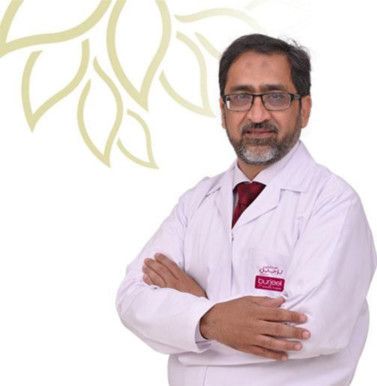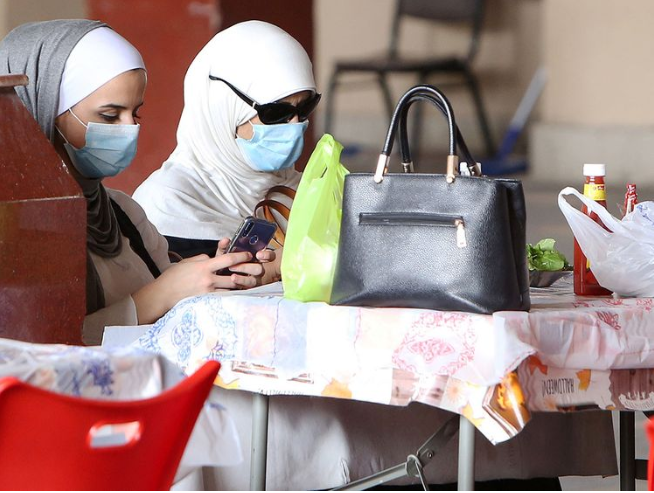COVID-19: There is no need to press the panic button, say doctors
Dubai: What if your flat-mate, roommate or colleague has been tested positive for novel coronavirus (COVID-19)? Should you rush to press the panic button?
The resounding answer by UAE doctors is ‘no’.
Medical experts and frontliners said there is no need to panic as it might “cause more harm than the virus itself”. But it is very important to seek and follow the guidelines set by the authorities.
Dr Alla Ud Din, consultant pediatrician and neonatologist at Burjeel Specialty Hospital Sharjah, told Gulf News: “Housemates should get advice from the nearest clinic or hospital inquiring if there is a need to be tested for COVID-19.”
“A GP (general practitioner) or hospital doctor will make a decision whether or not to proceed with the lab test, as per Ministry of Health and Prevention (MoHAP) guidelines.”
ALSO READ
- Philippines ambassador to Lebanon dies of COVID-19
- Oman reports 21 new virus cases; tally 231
He added: “Contacts of a confirmed case should voluntarily undergo home quarantine even if not tested. Any person in home quarantine who develops symptoms should contact a hospital for further advice or testing. If a colleague is tested positive, even if there are no symptoms, he/she should be isolated and will likely be admitted and treated in a hospital.”
Home quarantine
If there is a housemate who has been tested positive for COVID-19, the entire house should be disinfected and deep-cleaned.
“All frequently touched surfaces should be sanitised, including kitchen counters, tabletops, doorknobs, bathroom fixtures, toilets, phones, etc. Immediately remove and wash clothes or beddings that have blood, stool or body fluids on them. And remember to wear disposable gloves while handling soiled items, and keep soiled items away from your body,” said Dr Sreehari Pillai, medical administrator and specialist Internal Medicine at NMC Speciality Hospital, Abu Dhabi

Dr Pillai also shared important notes for anyone who is under home quarantine to follow.
He said: “Ban visitors who do not have an essential need to be in the home and avoid sharing household items, including dishes, drinking glasses, cups, eating utensils, towels, bedding and other items.”
There should also be a separate bedroom and bathroom for a sick person who should also eat in their room if possible and wash dishes and utensils using gloves and hot water.
For those who have been in direct contact with a confirmed patient, Dr Mohamed Anwer Abdelsalam, Specialist Critical Care Medicine and Head of Intensive Care Unit at NMC Specialty Hospital, Al Ain, has this advice: “If you feel sick or unable to cope with your activity of daily living, contact your health care provider immediately, and you will be advised regarding the necessary tests and the needed action.

Meanwhile, stay at home and keep yourself well hydrated and eat healthy food. If your symptoms are severe from the beginning, please visit your nearest emergency hospital, and keep wearing a mask all the time,” he added.
Who qualifies as a close contact?
A specialist pulmonologist, Dr Sukant Bagdia from NMC Royal Hospital DIP, meanwhile, clarified who is a “close contact” of a COVID-19 patient.
He said they include anyone living in the same household as a COVID-19 case; a person having had direct physical contact with a COVID-19 case (e.g. shaking hands); a person having unprotected direct contact with infectious secretions of a COVID-19 case (e.g. being coughed on, touching used paper tissues with a bare hand); a person having had face-to-face contact with a COVID-19 case within two metres and under 15 minutes; and a person who was in a closed environment (e.g. classroom) with a COVID-19 case for 15 minutes or more and at a distance of less than two metres.

A healthcare worker who has provided direct care for a COVID-19 patient without recommended PPE (personal protective equipment) is also consired a close contact.
“If you are having no symptoms, you should get the COVID-19 test done anyway and follow home quarantine for 14 days starting from the testing date. If you turn out to be positive, you will be called by the medical team for admission and further management would be guided by baseline investigations and clinical situation. But if the test is negative, the person should still complete the 14 day quarantine and follow up with the doctor if they develop any new symptoms for further health checkup,” Dr Bagdia underlined.
He said: “Isolation precautions specific to COVID-19 can be discontinued if the patient is afebrile (not feverish) and the patient is free of respiratory symptoms and has had three consecutive negative tests for COVID-19 that are 24-48 hours apart.”
The doctors said COVID-19 testing is not an issue as lab results come back after 24 to 48 hours. There is also a new technology being introduced that can determine if a person has coronavirus in just 20 minutes.
How to get help
If an individual suffers from symptoms like fever, cough, cold, shortness of breath or experience difficulty in breathing, they can contact any of the COVID-19 Hotlines:
80011111 – Ministry of Health and Prevention
8001717 – Department of Health
800342 – Dubai Health Authority



